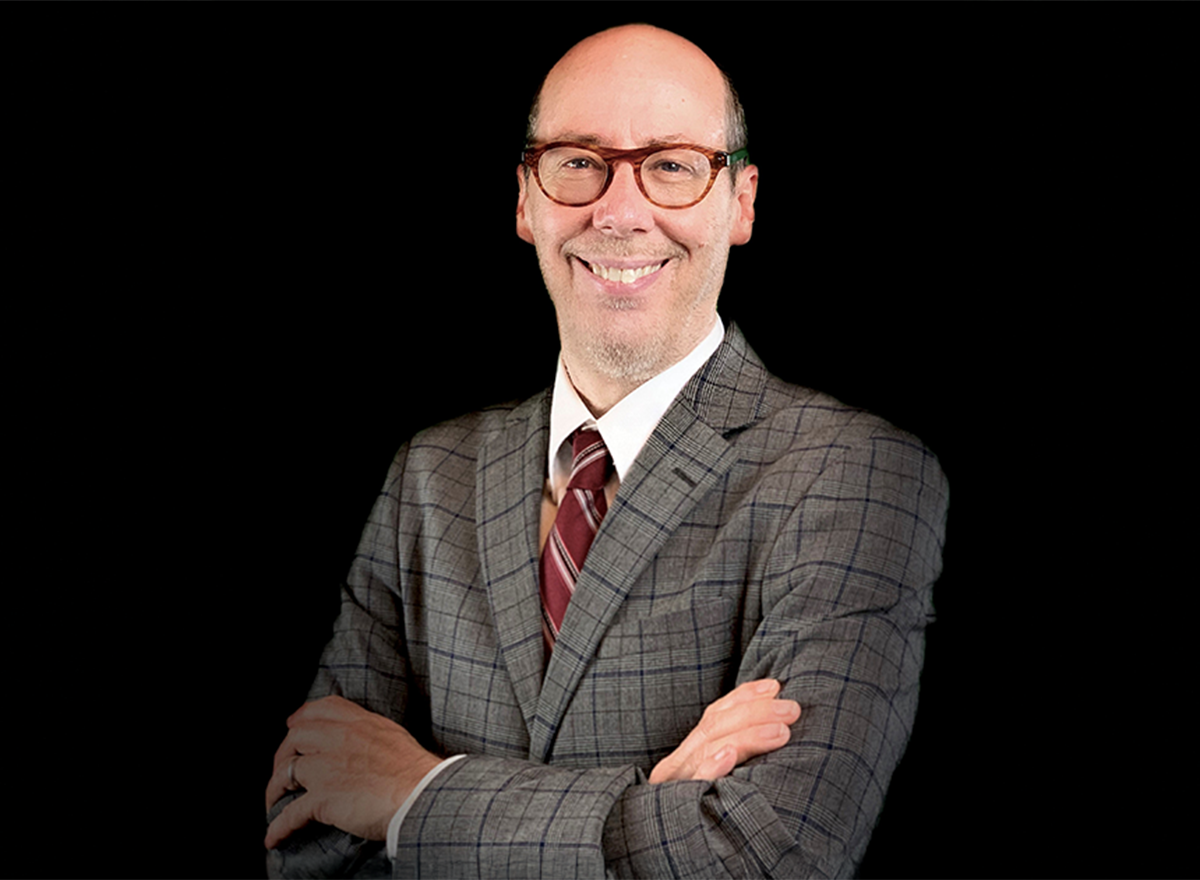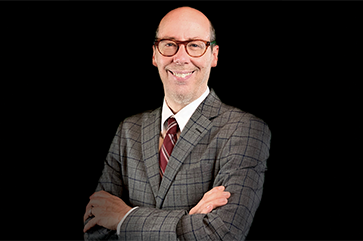‘Feed the future’: UCLA Rothman Family Institute for Food Studies announces executive director
Global sustainable food systems expert Jack Bobo joins UCLA

Jack Bobo
“The work of the Rothman Food Institute is vital, and UCLA’s resources and expertise make it the perfect place to help us drive that change forward,” said Bobo.
By Jonathan Riggs | October 28, 2024
As part of solidifying the inaugural leadership team, Jack Bobo has been tapped to serve as the first executive director of the UCLA Rothman Family Institute for Food Studies. He will join Amy Rowat, the RFI’s inaugural faculty director and UCLA’s Marcie H. Rothman Presidential Chair of Food Studies, to lead the trailblazing institution.
Currently the director of the Food Systems Institute at the University of Nottingham, Bobo will bring his extensive expertise in sustainable food systems to lead the Rothman Institute. A globally esteemed thought leader in the field, former senior advisor for food policy at the U.S. State Department and author of the 2021 book “Why Smart People Make Bad Food Choices,” Bobo will help strengthen the global collaborative perspective of the RFI.
“We are proud to welcome Jack Bobo as the first executive director of the UCLA Rothman Family Institute for Food Studies,” said Adriana Galván, dean of undergraduate education. “Equally committed to sustainability, science-based solutions and inclusive community engagement, he brings an exceptional vision to make sure the RFI reaches its full, world-changing potential.”
We asked Bobo to share his thoughts as he prepares to begin his work at UCLA.
What excites you the most about becoming the inaugural executive director of the UCLA Rothman Family Institute for Food Studies?
Our food system is one of the biggest challenges we face, but it’s also central to everything — because everyone eats, and everyone cares deeply about food. At the same time, food has a massive environmental footprint, so the opportunity for this new institute to tackle the critical question of how we sustainably, nutritiously, and equitably feed the future is incredibly exciting. UCLA has a bold vision to make a meaningful impact in this area, and I’m thrilled to be part of that. With the extensive, world-class research happening across the university on food, nutrition, and the environment, the Rothman Food Institute can serve as a connector to amplify and scale those efforts, creating even greater impact—and then building from there.
Why are food studies such an important area?
Agriculture is at the heart of many of the world’s most pressing challenges. It occupies 40% of all the suitable land on Earth — an area the size of South America is used for crops, and pastureland equals the size of Africa. Agriculture also consumes 70% of the world’s freshwater, and contributes 10-15% of global greenhouse gas emissions. When you add deforestation, 80% of which is driven by agriculture, that figure rises to nearly 30%.
How we produce food already has this enormous impact, and yet we’re going to be adding another one and a half billion people to the planet by 2050. Plus, we currently have 800 million people who will go to bed hungry tonight. The challenges are enormous and we really need everybody working together in order to solve this.
What do you see as some of the greatest challenges to achieving that goal?
Beyond the science and the technology, one of the biggest challenges is the polarization in our society. People have very different visions for the future of food, and many see no room for overlap or compromise. On one side, there’s the push for organic, regenerative agriculture focused on reducing environmental impact, and on the other, we have more intensive, industrial-scale agriculture, which produces large quantities of food but comes with trade-offs. Rather than viewing one as good and the other as bad, I see them as points along a continuum — from local to global sustainability. Too few institutes are tackling these issues in a way that fosters collaboration instead of deepening divides, and that will be a central focus of our work at the Rothman Food Institute.
What sparked your interest in this area?
I’m originally from Indiana, which is big farm country. We weren’t farmers, but our family garden was pretty big — we grew corn, peppers, tomatoes, green beans, onions, cantaloupes, watermelons, strawberries — and my mother canned it all. So I grew up knowing what it meant to produce your own food in the U.S. When I became a Peace Corps volunteer and lived in Gabon for two years, however, it opened my eyes to the food production challenges of the rest of the world. That experience broadened my perspective and led to a 13-year career at the U.S. Department of State, where I worked on global food policy across Africa, Asia, and Europe. I ended up traveling around the world to 50-60 countries, talking about the future of food, the role of science and how we bring people together to address these complex challenges.
What does it mean to you to work alongside RFI faculty director Amy Rowat, founder Marcie Rothman and assistant director Erica Lee?
Any time you can work with passionate people, it gives you more energy and encouragement to get out and do more, every single day. I’m inspired by my new colleagues, who have distinguished themselves as passionate people who share a vision for making a lasting impact on the planet for current and future generations. Their dedication is inspiring, and I’m excited about the potential we have to create real change together. The work of the Rothman Food Institute is vital, and UCLA’s resources and expertise make it the perfect place to help us drive that change forward. The future is bright, and I’m thrilled to be part of this journey.




